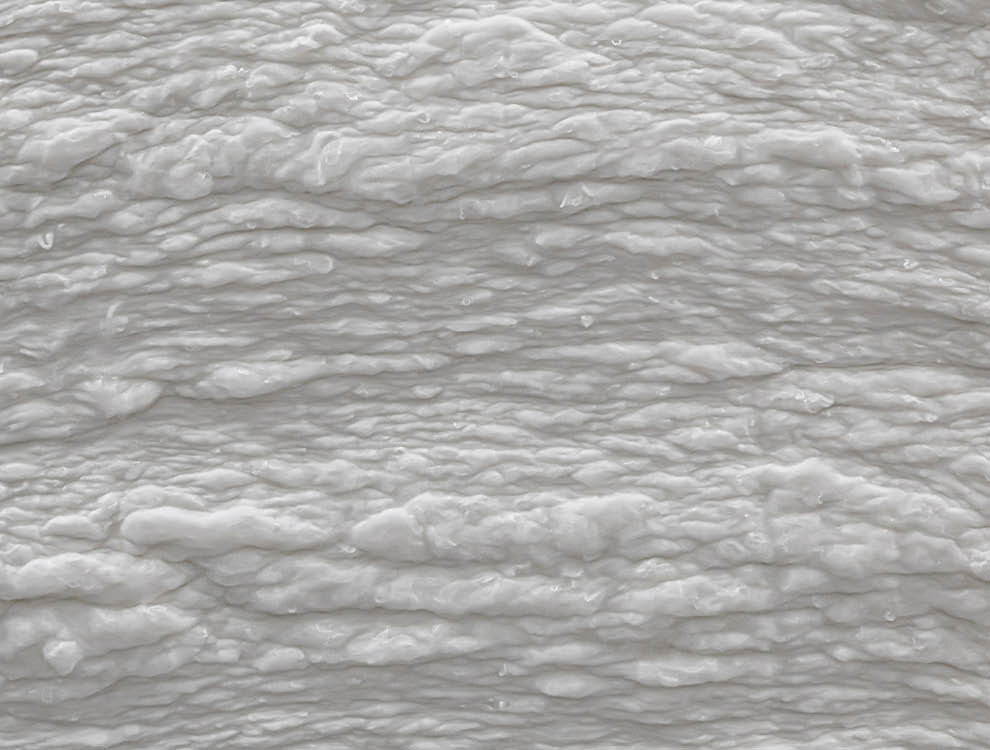The versatility of nonwovens
Nonwovens are universal materials that are used in various areas. But what exactly are nonwovens? Nonwovens consist of many individual fibers that are not joined together by weaving or knitting. Instead, they are joined using various production processes such as meltblown, needlepunch, spunlace, thermal bonding or air-through bonding. In the production of nonwovens, the fibers, which are usually pressed into bales, are first loosened and blended to form a fibrous web. In order to produce a cohesive fabric – and thus a nonwoven – the web must then be bonded using a variety of methods. This whole process creates a non-woven fabric with impressive properties that is suitable for a wide range of applications.
Fibrous raw material for nonwovens
Nonwovens can be made from a variety of fibers. These include synthetic chemical fibers such as polyester, polypropylene or polyethylene. But also synthetic fibers made from natural raw materials such as lyocell and viscose. In addition to synthetic fibers, natural fibers can also serve as raw materials for nonwovens. Here, natural plant fibers such as cotton or natural animal fibers such as wool or silk are usually used. In the past, mainly cotton, sheep's wool and camel hair were processed in Sandler Group's old plants. Today, these types of fibers are rarely found there. This is because the choice of fiber influences the properties of the nonwoven and determines its fields of use. Synthetic fabrics are characterized by their water resistance. They are therefore popular for the use in damp environments. Lyocell is often used in hygiene products due to its soft texture and high breathability. Viscose, a fiber derived from wood, is very absorbent. Viscose is therefore often used in hygiene applications or wipes. Nonwovens can be used in a wide variety of areas.
Versatile nonwoven solutions from Sandler: quality for every use
Sandler Group has established itself as a leading manufacturer in the nonwovens industry. In the production of nonwovens, we specialize mainly in staple fiber nonwovens. These are nonwovens made from fibers of limited length. We supply nonwovens for a wide range of applications. From building insulation and acoustics optimization to industrial and technical insulation applications and filtration. Sandler offers customized solutions for the construction, household, hygiene, industry and mobility sectors. You may come across products comprising our nonwovens every day. For example, in the areas of cleaning, feminine hygiene, wound care or baby care. Our nonwoven solutions also impress in the upholstered furniture and mattress industry with their outstanding quality and versatility.


Sandler: Experience and passion for a sustainable future
Sandler is characterized by many years of experience and a strong commitment to sustainability. We are tirelessly committed to supporting sustainable business practices. And to meet international standards such as the United Nations Sustainable Development Goals. We actively strive to lead the way towards a resource-efficient future. Our approach encompasses various areas: people, energy, mindset and product. It is particularly important to us to design sustainable alternatives for disposable products without compromising on convenience. We are passionate about respectful action and innovative solutions. Together we strive for sustainable innovations in order to actively make a positive contribution to the world of tomorrow.





